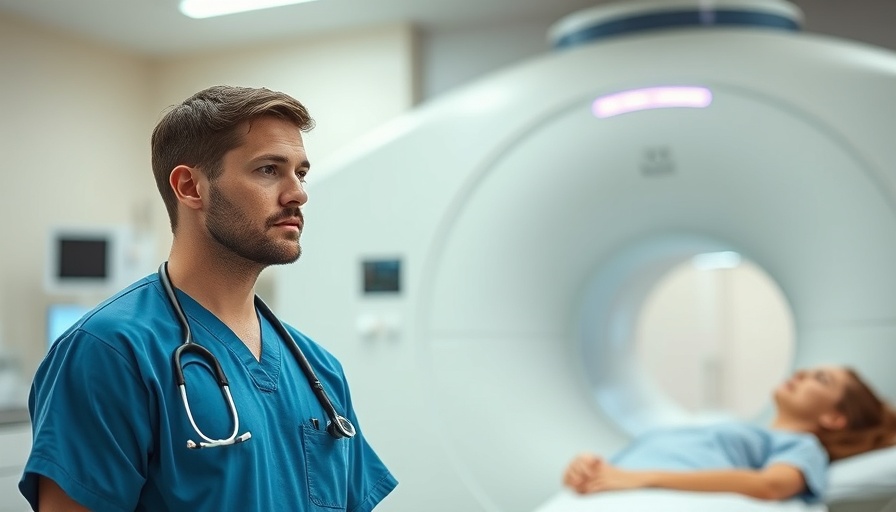
Understanding the Rise of Whole-Body MRI Scans
In recent years, the conversation around preventive healthcare has dramatically shifted, partly due to social media hype and the influence of celebrities. One prominent technology at the center of this discussion is the whole-body MRI scan offered by Prenuvo, a company co-founded by Andrew Lacy. This method claims to detect potential health issues before they escalate, creating buzz and controversy.
In 'Do You Need A Full Body MRI Scan? | Prenuvo CEO', the discussion dives into the emerging technology of whole-body MRI scans, exploring key insights that sparked deeper analysis on our end.
What Is a Whole-Body MRI Scan?
Whole-body MRI scans aim to provide a detailed picture of your overall health, potentially identifying issues like cancers or chronic diseases in their early stages. Celebrities like Kim Kardashian have touted these scans as life-saving, igniting both excitement and skepticism. While the message is appealing, it raises questions about the necessity and effectiveness of such screenings, especially for asymptomatic individuals.
Reviewing the Scientific Evidence
Current guidelines from major medical organizations, including the American College of Radiology, do not recommend routine whole-body MRI scans for healthy individuals without symptoms or risk factors. Their rationale lies in concerns about false positives, unnecessary procedures, and whether the benefits truly outweigh the risks. Skeptics highlight the potential anxiety generated by diagnosing conditions that may not have required treatment, paralleling the fallout from overused procedures in past decades.
The Emotional Impact of Health Screening
As we navigate advancements in healthcare technology, the emotional angle cannot be neglected. Many people experience health anxiety, which can be exacerbated by the influx of information from social media influencers promoting the latest health trends. Andrew Lacy himself noted how his life changed significantly after undergoing a scan, attributing it to newfound peace of mind. For some patients, this scan could similarly ease concerns, but for others, it might create additional anxiety about abnormalities that lead to a cycle of testing and worry.
Cost and Accessibility Considerations
While Prenuvo's service is innovative, the cost (around $2,500) is a significant barrier to many Americans, particularly those in underserved communities. Some healthcare advocates suggest that until comprehensive studies yield robust evidence favoring widespread use, the financial implications and psychological ramifications must be prioritized. Many patients are already overwhelmed by the complexities of the healthcare system, and jumping into high-stakes imaging without solid reasoning may not actually alleviate their health concerns.
Moving Toward Holistic Health
As individuals, the question remains: How proactive should we be? While knowledge is power, it's also vital to engage in discussions with our healthcare providers about the most suitable approaches for our unique health profiles. This preventative strategy can be beneficial when targeted appropriately, focusing on what is actually proven to help rather than adopting a 'one size fits all' solution.
Conclusion: The Future of Preventive Care
In the end, the debate surrounding whole-body MRI scans evidenced by Prenuvo encapsulates the tension between innovation and evidence-based medicine. While the emotional benefits of peace of mind are real and valid, it remains crucial to assess whether such screenings offer more value than risk. As more studies unfold, understanding the role of advanced imaging technologies in preventive care will pave the way for a healthier future for all.
Ultimately, engaging in informed conversations about our health choices is the best way forward. If you're intrigued by the possibilities of advanced screening or seeking ways to enhance your overall well-being, talk to your healthcare provider about the best steps for you.
 Add Row
Add Row  Add
Add 




 Add Row
Add Row  Add
Add 

Write A Comment